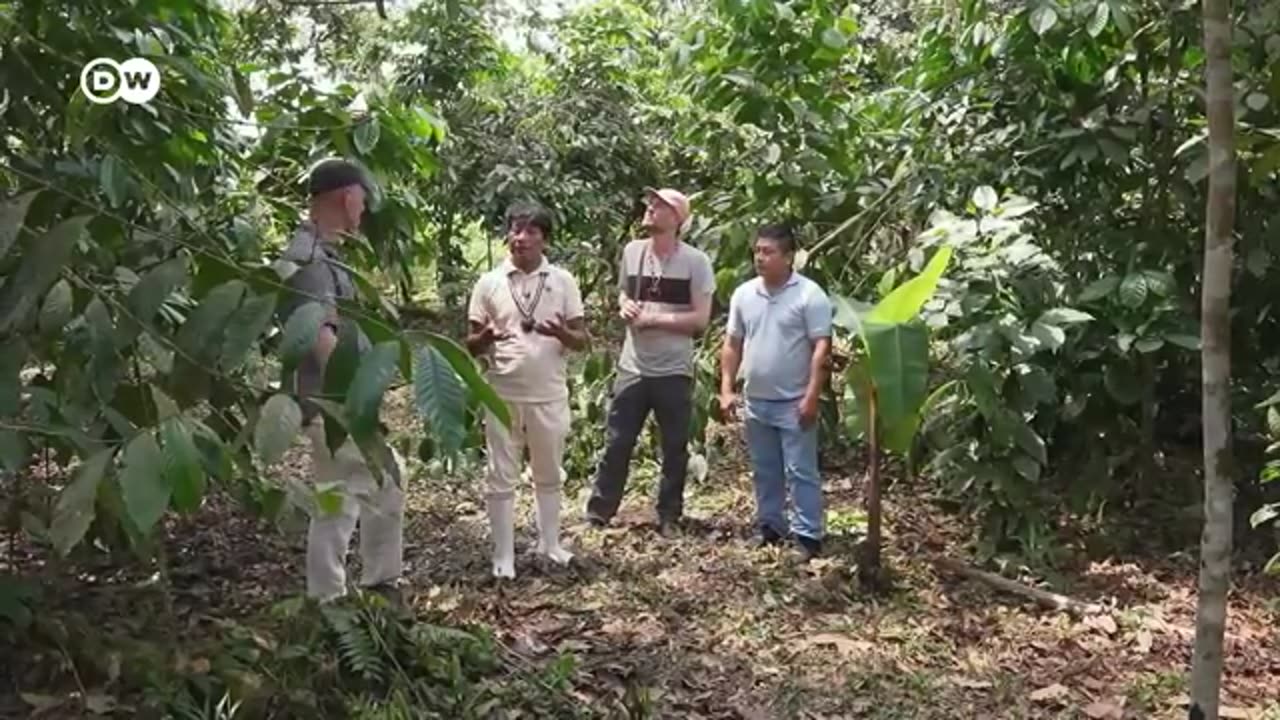Premium Only Content

How climate change threatens coffee production DW Documentary
Climate change could halve the amount of land suitable for coffee production by 2050. In a bid to save one of the world’s most popular drinks, many people are busy experimenting with more resilient coffee varieties and sustainable growing methods.
In Uganda, about 1.8 million smallholders make their living growing coffee. Coffee beans are one of the East African country’s most important exports. But droughts, torrential rain, and pest damage are increasing problems. The most common types of coffee, Arabica and Robusta, are at risk because they need stable temperatures. That’s why Davis Kuloba and other farmers are now pinning their hopes on a wild type of coffee, Liberica, which appears to be more climate-resilient and resistant to pests. However, not everyone is convinced by its taste. There’s still more work to be done to improve how its cultivated and processed.
In the Amazon rainforest in Ecuador, a cooperative is growing coffee under the shade of other trees. This model runs counter to conventional, industrial-scale coffee plantations. It’s hoped that this strategy, known as agroforestry, will help future-proof coffee production. More and more coffee roasting companies in Germany are showing an interest in alternative forms of cultivation. The industry is changing, thanks to the rise of resilient bean varieties, sustainable cultivation, and fairer trade conditions. Coffee — fit for the future.
#documentary #dwdocumentary
-
 25:55
25:55
DW Documentary & DW Travel
23 days agoHow sustainable are tomatoes? | DW Documentary
17 -
 LIVE
LIVE
Neil McCoy-Ward
49 minutes agoTHE AI JOBS COLLAPSE HAS BEGUN! (And No One’s Ready for What’s Next…)
921 watching -
 LIVE
LIVE
Side Scrollers Podcast
2 hours agoJOEY SWOLL/HULK HOGAN CONTROVERSY + ONLINE SAFETY ACT + MORE | SIDE SCROLLERS
230 watching -
 LIVE
LIVE
GloryJean
3 hours agoSolo Sniping & WINNING 🖱️ 6.7 K/D
36 watching -
 2:00:46
2:00:46
Steven Crowder
4 hours agoGrading Donald Trump's First 6 Months: Epic Success or Massive Failure?
210K95 -
 55:22
55:22
The Rubin Report
2 hours agoTsunami Evacuation Creates Massive Oprah Winfrey Controversy
20.8K18 -
 LIVE
LIVE
The Mel K Show
1 hour agoMORNINGS WITH MEL K - Signal to Noise: Parasitic Global Governance Agenda 2030 Undeterred & UnAmerican 7-30-25
858 watching -
 LIVE
LIVE
LFA TV
16 hours agoLFA TV ALL DAY STREAM - WEDNESDAY 7/30/25
3,355 watching -
 LIVE
LIVE
The Shannon Joy Show
2 hours ago🔥🔥The Roots Of Technocracy EXPOSED. Dark Enlightenment & The Game B Techno-Beast. Top Experts Patrick Wood, Courtenay Turner & Joe Allen LIVE & Exclusive! 🔥🔥
239 watching -
 46:48
46:48
Grant Stinchfield
1 hour agoLawyers, Lies & Deleted Tweets: The Russia Hoax House of Cards Is Collapsing
2.49K2